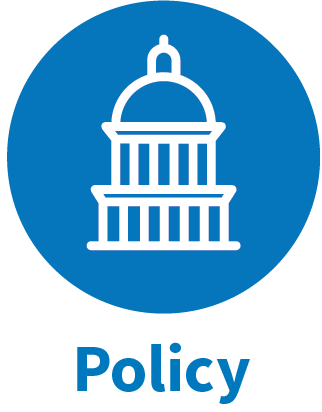HOPE
Helping Our Patients Engage in Weight Management
Keywords
Intensive behavioral therapy for obesity; weight management; behavior change support
Types of Research
Dissemination and implementation research
Summary
Helping Our Patients Engage in Weight Management (HOPE) is a PCORI funded implementation project aimed at supporting primary care practices in Colorado and nationwide to deliver intensive behavioral therapy for obesity. Thirty diverse practices are participating, ranging from small direct primary care practices to large system-based practices. Practices receive training and longitudinal practice facilitation to provide IBT for obesity in either group or individual formats.
A curriculum based on the Diabetes Prevention Program approach was developed for clinical teams to use with patients, and patients are encouraged to set SMART goals around diet, physical activity, and stress reduction or other lifestyle management topics. We are evaluating implementation outcomes including number of patients reached through the project, effectiveness, adoption by clinical teams, fidelity or adaptations, and plans to continue to provide IBT past the project period.
Significance
Obesity is the most prevalent chronic disease in the United States. Although recent weight loss medications have made medical treatment easier for many people, most patients still do not receive structured and consistent lifestyle change coaching and support. This project aims to equip clinical teams to help patients increase health for the long term through behavior change.
Impact
This project has the potential to bring lifestyle change support to patients in primary care that are not otherwise receiving this, potentially improving their current health and preventing development of significant diet-related chronic illness down the road.
Translational Science Benefits Model* Benefits | ||
| Demonstrated: Benefits are those that have been observed and verifiable. Potential: Benefits are those logically expected with moderate to high confidence | ||
| Delivery of evidence-based weight management treatment to patients in primary care clinics through training of clinicians and teams and use of an evidence-based program. Demonstrated |  | Therapeutic Procedures |
| Quality of care is enhanced when patients receive evidence-based weight loss care from their primary care team. Most primary care practices struggle to provide the standard of care for weight loss. HOPE seeks to help care teams deliver a higher level of care. Potential |  | Health Care Quality |
| HOPE supports patients making changes in diet, exercise and other habits that promote weight loss. Potential |  | Disease Prevention and Reduction |
| HOPE is provided as a care service to patients in the communities served by the participating clinics. Demonstrated |  | Community Health Services |
| HOPE provides educational resources to practices in the form of a curriculum, patient education materials, website and learning community that facilitates delivering weight loss to patients. Demonstrated |  | Health Education Resources |
| By making weight loss care available to patients through their primary care practice, HOPE seeks to improve the experience of providing weight loss care by primary care teams and result in less use of the health care system by healthier patients, reducing health care costs overall. Potential |  | Health Care Delivery |
| Patients participating in HOPE may appreciate improved quality of life and increased life expectancy by reduction in other life-threatening conditions such as diabetes, heart disease and cancer and have improvements in mental health and social relationships. Potential |  | Life Expectancy and Quality of Life |
| If HOPE is effective in helping patients to achieve and maintain a healthy weight, the benefit is great in terms of social cost reduction from reducing costs effects of diseases associated with obesity. Potential |  | Societal and Financial Costs of Illness |
| HOPE is studying the benefits of the program for patients relative to the cost of delivering it. Potential |  | Cost Effectiveness |
| Published manuscripts in the scientific community describing HOPE and early results demonstrating value to primary care practices and factors related to successful implementation. Potential |  | Scientific Research Reports |
*The Translational Science Benefits Model is a framework designed to help public health and clinical scientists demonstrate the impact of their work in the real world. The Translational Science Benefits Model and Translating for Impact Toolkit © 2017-2023, created by the Institute of Clinical and Translational Sciences at Washington University in St. Louis and available at translationalsciencebenefitsmodel.wustl.edu, is licensed under Attribution-NonCommercial-ShareAlike 4.0 International (CC BY-NC-SA 4.0).
Implications for Reducing Health Disparities
This project brings lifestyle behavior change support to primary care settings, potentially increasing access for people who are not able to obtain it elsewhere due to financial barriers.
Lessons Learned
Similar to other implementation projects: a practice champion is crucial and staff turnover can derail projects; However people are interested in addressing obesity in primary care and are creative in adapting programs to fit their settings.
